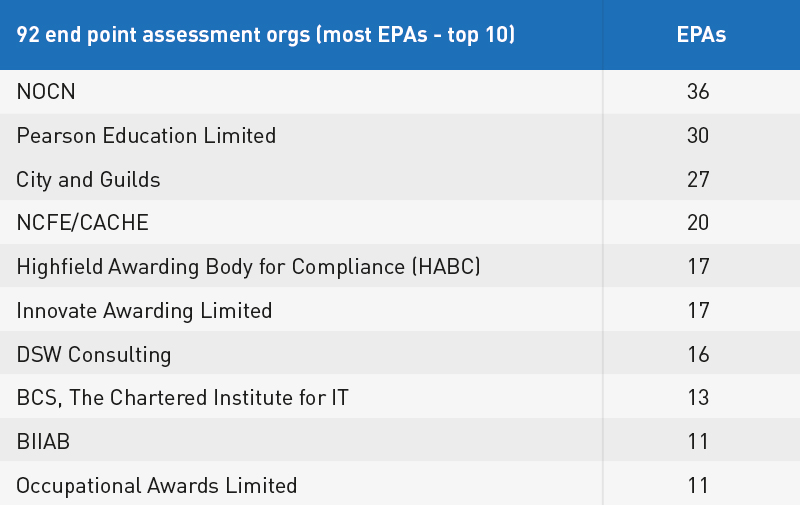Using technology to assist the delivery of an engaging education experience is no longer a luxury — it’s a necessity.
Tools like Canvas can help institutions change pedagogy and deliver a flexible, progressive and student-centred approach which focuses on meeting these unprecedented demands.
In the face of dwindling budgets, increasing populations, and unprecedented global competition, the task for FE colleges has never been harder.
With a universal focus on price, accessibility and reach, education is in danger of becoming a mass-produced, non-specialised product that will diminish in value.
Together with the demands of an unpredictable employment market, where automation threatens many traditional jobs, these challenges mean that FE colleges are being forced to look again at the education they provide. Educators must provide an engaging and motivating learning experience, while delivering skills capable of morphing to suit the changing workspace.
This is where technology can help.
What about budget?
Fundamental change must be delivered on a limited budget. Pockets of funding for all educators have disappeared in recent years – and FE institutions report that budget cuts are hitting them particularly hard.
This can make justifying any expense tricky, and we know that some colleges look to quick-fixes when it comes to tech – reporting that free software may promise a cost-effective alternative to more commercial solutions.
However, we’d warn against a cost-cutting approach to buying technology. We sometimes talk about the ‘hidden cost of free’; as colleges fail to factor in the costs of the ongoing maintenance and support as well as the up-front development needed to get the project’s true cost. Colleges find themselves on their own if something goes wrong with free software – and fixing the problem themselves may prove a bigger commitment than the lack of upfront cost justifies.
The Canvas solution
Offsetting the cost of commercial solutions are the cost savings which clever tech use can ultimately deliver. Tools like Canvas, our own Virtual Learning Environment, can ultimately save time, resources and reduce admin costs – significantly speeding up lesson creation, grading and reporting.
Moving beyond cost, if it’s used properly, and purchased to fulfil a real need, technology use can vastly enhance learning and teaching – and be particularly beneficial to college students, as they prepare for work in a technology-centric economy. Using digital content and sharing lesson plans and ideas globally with a teacher network can create engaging lessons.
New pedagogy like the flipped classroom and blended learning are powered by tech and can totally transform the learning experience. Completing rote material or ingesting lectures at home can free up classroom time for more in-depth and personalised teaching.
Tools like Canvas have the ability to immediately measure a student’s achievement on any given piece of work, look at what aspects of the teaching and learning have worked and what have not, and then adapt their instruction accordingly.
Students benefit from the more responsive teaching – and a collaborative teaching and learning environment.
However, tech adoption will only deliver the benefits it promises if it’s adopted as part of a long term, pedagogy-driven strategy – to improve teaching and learning. Together with the hidden costs of ‘free software’, looking only to short-term objectives can have a damaging effect on teacher and staff views of classroom technology. For many, all they know is the kind of software which is at best a place to store documents and at worst, an unreliable service that scuppers far too many well-laid lesson plans.
But, different is possible. We’d urge FE institutions to take the leap into tech-enabled learning – but to put student and teacher experience, and learning outcomes, firmly at the heart of their strategies.
Learn more how and why further education institutions are switching to Canvas at www.canvasvle.co.uk/fe
Case study: Career Colleges Trust – Building tomorrow’s workforce
Bev Jones, Director of Operations at the Career Colleges Trust
The Career Colleges Trust was founded in 2013 by former education secretary Lord Baker to improve vocational further education in the UK. We support a network of recognised ‘career colleges’ around the country specialising in a variety of industries from Hospitality to Digital Technology. By helping further education colleges to prepare students for their future careers in industry, we’re addressing an issue high on the agenda for academia and industry alike – the UK skills gap; where there aren’t enough skilled graduates to meet employer needs. We think that the skills shortage is stifling UK economic growth, but that greater emphasis on vocational training can go a long way to close the gap.
At the Career Colleges Trust we talk about not just a skills gap, but a fundamental skills mismatch. And we believe that it’s crucial to understand where the mismatches between the needs of employers and skills of students in FE lie. By far and away the greatest issue that employers report is around digital literacy; and their desire for tech-savvy graduates, ready to enter the working world. The pace of technology development in industry is astounding – and if we don’t help students acquire adequate digital skills in the classroom, we are limiting their chances in the world of work.
Technology use in the classroom supports a learning style which appeals to young minds. Many students in further education already use social media to question, challenge and enhance ideas in all aspects of their life. These tools can be harnessed to engage with pupils with learning, and brought into the learning environment.
We encourage our colleges to look at the technology they’ve bought, to assess how they’re using it and to check whether they really have the tools they need to support their teaching. One of the courses we provide for each of our career colleges is around the specific digital skills required in various industries, and more generally in the world of work. Delivered online, using Canvas, this checklist is a kick-starter for colleges to begin to support online learning and digital collaboration between students, teachers and businesses.
Teaching the teachers
It’s natural that lecturers or college management may be reticent to use technology in the classroom, if they’re not as comfortable with it as their students. To address this, we provide all of our Continuing Professional Development (CPD) courses for teachers online using Canvas.
This approach immerses teachers in a digital learning environment in a natural and low-pressure way, making them comfortable with the process and able to start seeing the benefits of using technology at work.
Training the teachers is key – and the intuitive and user-friendly nature of Canvas has made it the ideal tool to help. We’re keen to let teachers find their own way with the system – discovering how it can help in their own teaching.
Ultimately, we believe that using tools like Canvas can help teachers in all aspects of their work – allowing them to have a much greater sense of students’ progress, strengths and weaknesses. They can collaborate much more closely with their students, and tailor their teaching to individual needs.
Learn more how and why further education institutions are switching to Canvas at www.canvasvle.co.uk/fe










